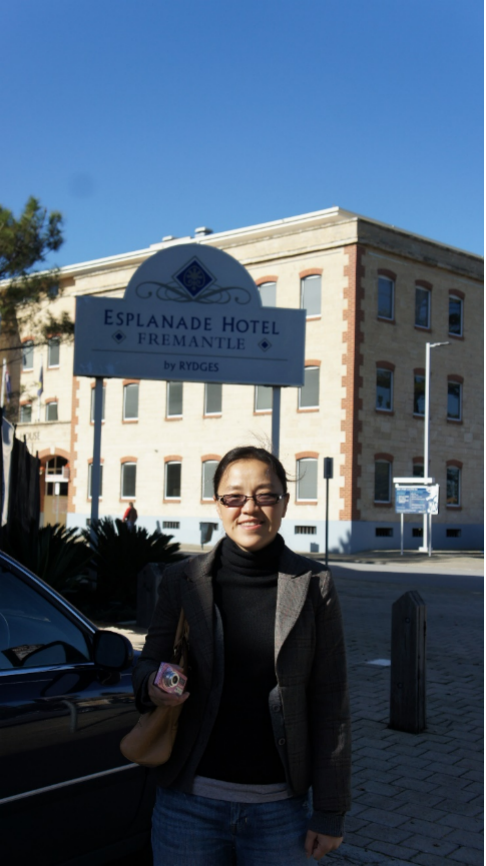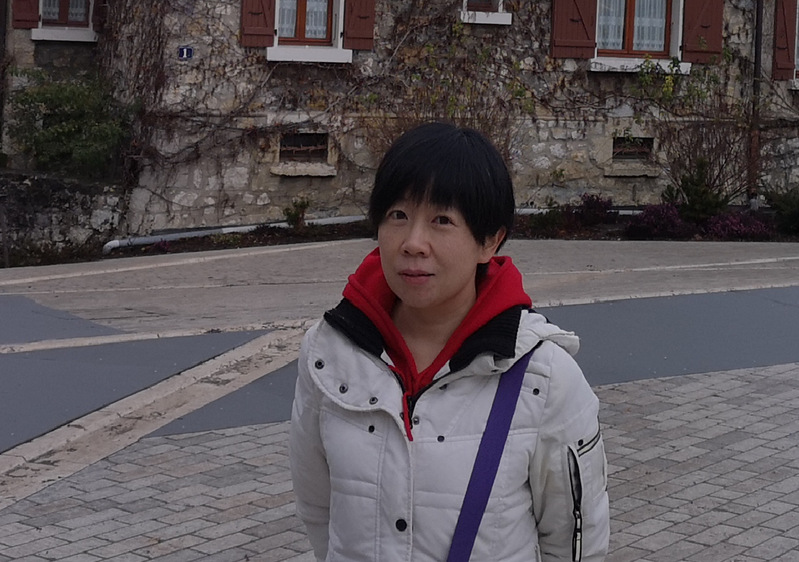
The Online International Workshop International Culture Marketing and Regulation, which is organized by the Institute for a Community with Shared Future of the Communication University of China, started on 29th April 2021.
This workshop is based on the course of ICSF Ph.D. Program by Professor Li Huailiang. It is open to Ph.D. students of ICSF, students and experts from the member institutes of the International Academic Network for a Community with Shared Future from Germany, the UK, Tanzania, Ethiopia, Pakistan, Malaysia and Korea.
Introduction to
International Culture Marketing and Regulation
Lecture one
Description: we will talk about the general situation of current international culture markets, and its characteristics and trends. We will discuss the framework of regulations on international cultural markets. Furthermore, we will explore the background of culture markets, discussing the discourse of international liberalism, soft power, globalization and the concept of a community with a shared future.
Further Reading:
UNESCO: Framework for Cultural Statistics.
UNESCO: Policy guide for a resilient creative sector.
UNCTAD: Creative Economic Report.
WIPO: WIPO Guide on Surveying the Economic Contribution of the Copyright.
Lecturer: Professor Li Huailiang

Li Huailiang is a distinguished Professor in International Cultural Trade and the Dean of the Institute for a Community with Shared Future (ICSF) at the Communication University of China (CUC) inBeijing, China. He is Director of the National Theoretical Research Base for Foreign Cultural Trade and the Vice Chairman of the China Society of Media Economics and Management. He was a Senior Visiting Scholar at George Washington University, USA and a part-time Ph.D. Supervisor at Queensland University of Technology, Australia. He obtained his Ph.D. Degree at Renmin University of China and has dedicated his research focus to the field of international cultural trade and “community with shared future for mankind. Professor Li Huailiang has published over 90 fundamental and significant research articles on culture, international cultural trade and cultural industry in major Chinese newspapers. A majority of his publications were quoted by nationally renowned news agencies, such as Xinhua Digest. He has written and published many books, including Contemporary International Cultural Trade and Competition and International Cultural Trade Theory.
Lecture two
Description:
Digital Trade and Regulation Measures
1.Evolution of the digital economy and digital trade concept, recent trend in the digital economy technologies--- block chain technologies, three-dimensional printing, internet of things, 5G mobile broadband and Cloud computing. Discussing the influence of the digital technology on the international culture trade.
2.Drivers of value creation in the digital economy--- digital platforms, the central role of data and digital intelligence in the digital economy, focusing on the complex nature of data, the economic value of data, the complex characteristic of data flow (goods or service trade).
3.Digital trade regulation measures: introducing The OECD Digital Services Trade Restrictiveness Index and Digital Trade Restrictiveness Index issued by European Center for International Political Economy (ECIPE), analyzing the Digital trade restrictive index framework and trade restrictive and trade facilitating measures, methodology for developing the Digital trade restrictive index, the correlation of Digital trade restrictive index, digital economy development and digital trade volume. Taking China as an example, discussing China’s digital trade measures and policies to identify regulatory bottlenecks and design policies that foster more diversified and competitive markets for digital trade.
4. Measurement of digital trade: introducing a method to evaluate global trade in electronic online transmissions of digitalized products (most of them are culture goods), discussing moratorium and estimated tariff revenue loss of developing Countries in the digital era.
Further Reading:
1. Rashmi Banga,“Growing Trade in Electronic Transmissions: Implications for the South”,UNCTAD Research Paper No. 29,February 2019. Available at: https://ourworldisnotforsale.net/2019/ser-rp-2019d1_en.pdf
2. Ferencz, J. The OECD Digital Services Trade Restrictiveness Index. OECD Trade Policy Papers No. 221. available at: http://dx.doi.org/10.1787/16ed2d78-en.
3. UNCTAD. Digital economy report 2019.
available at: https://unctad.org/webflyer/digital-economy-report-2019
4. Martina Francesca Ferracane, Hosuk Lee-Makiyama and Erik van der Marel. Digital Trade Restrictiveness Index. European Center for International Political Economy. available at: https://ecipe.org/dte/dte-report/.
Lecturer:

Fang Ying is a professor in School of Economics and Management, Communication University of China. She has earned a PHD in Management Science. Her research expertise covers international cultural trade, digital trade, and international management of cultural enterprises. Ying Fang was a visiting scholar at Brock University in Canada and Missouri State University in the United States, studying the international management of enterprises. She serves as an expert on the national cultural trade academic research platform and a council member of the Beijing Institute of International Economics and Trade. She has won the honorary titles of Advanced Individual in Beijing Teachers' Ethics and Distinguished Teaching Rewards at Communication University of China. She led the project “Application of directional statistics in the Economics and Management”, which was funded by the National Social Science Fund. She also participated in the project of “Policies and Measures on Beijing Creative Industries ‘going out’ Project” and “Competitive Power of Chinese Cultural Industry from the Cultural Trade Deficit”. She is currently researching on several projects including “Measures on Chinese Culture “going out’ Project”, “Research on International Culture Market”, and “The Opening and Development Strategy of Cultural and Education Industry of Beijing”. She has published more than 20 papers in core journals such as “International Trade”, International Economics and Trade Exploration, World Economic Research” and “Economic Issues”.
Lecture three
Description:International Music Marketing and Music Copyright Law.This class examines the cultural, legal and business characteristics of international markets for recorded music. We will examine cultural trends and barriers in various international markets, the legal discrepancies, local media, and how music is marketed and distributed in these markets. We will look at music generated in these markets as well as the potential for the sale of mainstream popular music to these markets—production and consumption. We will examine repertoire, market share, media, publishing, live performance, piracy, parallel imports, and other elements region by region.
This class also discusses music copyrights that play a critical role in the music business. There are really two copyrights that exist in almost every recording: one for the song and one for the particular recorded performance of that song. When most people refer to a “song” they mean a recording of a particular song, not just the musical composition. In “copyrightland” those two different works have distinct meanings and rights. This class will explain two important rights: musical compositions(songs)and sound recording. A songwriter composes a song and a recording artist makes a recording of that song. Whenever the recording is sold ,downloaded, or played ,both works are being used. That means that both copyright owners may be entitled to some compensation for the use of their works. Copyrights in musical compositions provide important revenues for music publishers and songwriters and protection from unauthorized use of their songs. Copyrights in sound recordings, as distinguished from the song that is recorded, typically belong to the record company, less frequently to the recording artist or producer.
Further Reading:
IFPI (International Federation of the Phonographic Industry): www.ifpi.org
IIPA (International Intellectual Property Alliance: www.iipa.com
Geoffrey P Hull, Thomas Hutchison, Richard Strasser The Music Business and Recording Industry (Third Edition),Routledge 2011
Rich Stim Music Law-How to Run Your Band’s Business, Nolo 2009
Donald S. Passman. All You Need to Know About the Music Business.Rev.Ed. PENGUIN BOOKS, 2014
Lecturer: professor Tong Xuena

Office:
Building 53
Department of Music, School of Music and Recording Arts
Communication University of China
No.1,Dingfuzhang East Street, Chaoyang District
Beijing, China100024
Phone: 0086-10-13811103860
Email: tongxuena@126.com
Lecturer at the Communication University of China
Survey of music communication
Music copyright and case studies
Music marketing
Experience:
Professor, PhD Supervisor, in Department of Music, School of Music and Recording Arts,Communication University of China
Ph.D. in International Cultural and Trade Economics
Visiting scholar of Middle Tennessee State University during 2009-2010
Marketing consultant for Universal Music Company
Editor in charge of Music Communication magazine
Expert committee of Beijing Cultural and Creative Industry Promotion Center expert
Deputy Secretary-General of Music Industry Promotion Committee
Main research areas:
Music Industry Management, Music Copyright Law, Music Marketing
Part of Researchesand Publications:
Book, Operation and Management of Music Industry, Communication University of China Press, 2016
Book,Research on Industrial Value Chain of Digital Music, Tsinghua University Press, 2011
The translation of book, Electronic Media Management (5th Edition) ,Post and Telecom Press, January ,2010.
Article:“Exploring Music Communication Survey Methods”pulished in magazine MUSIC COMMUNICATION in 2008. Won national first prize in thesis contest, “Status and Development Trend of Music and Art Markets”, organized by China Arts Administration Educator Association in November, 2008;
Article:“Analysis of Profit Strategies in the Digital Music Market” (2009) ,Published in CSSCI core journals Music Research and won the First Prize in China for the Evaluation of the State of the Art and Music Market in Beijing and the Top-level Discourse on the Development of the Music and Art Market in Beijing.;
Article:“Wireless Music Industry Value Vhain”(2011), Published in CSSCI core journal modern communication and won the second prize of the 2nd National Music Papers Collection in 2011 (First prize vacancy)
Lecture Four
Description:Development of Global Game Industry.
As a mass media, video games, after nearly 40 years of development, have fully integrated and applied computer technology, interactive media technology, art design, economic system, business model, etc. As the ninth art, it has become an important pillar of the cultural industry, and its hardware and software innovation are also constantly changing people's entertainment consumption and interactive mode, since video games give consumers more initiative than any other media can give them. To offer an overall picture of the development of the global video game industry, this lecture will first take a look at the International game market scale. Secondly, this lecture will describe the International game market structure and summarize the different characteristics of each market segment, including the mobile game market, PC game market and console game market. Thirdly, this lecture will sort out the hot trends of international game market, including IP based games promoting in-depth development of industrial integration, e-sports plus live broadcasting promoting the expansion of game service industry chain, the mobile games becoming more and more important, VR games steadily developing, and etc. Finally, this lecture will give a specific introduction about American, Japanese, European and Chinese game industries respectively.
Further Reading:
1.2018 Essential Facts About the Computer and Video Game Industry[EB/OL]. ESA.[2018-07-02]https://newzoo.com/insights/trend-reports/newzoo-global-games-market-report-2018-light-version/
2.Top Countries by Game Revenues.Newzoo[EB/OL].[2018-07-02].https://newzoo.com/insights/rankings/top-100-countries-by-game-revenues/
3.Newzoo.Most Popular Core PC Games | Global(EB/OL).[2018-09-20].https://newzoo.com/insights/rankings/top-20-core-pc-games/
4.VGChartz.Year on Year Sales & Market Share Charts(EB/OL).(2018-09-01).[2018-09-20].http://www.vgchartz.com/article/392673/year-on-year-sales-amp-market-share-charts-september-1-2018/
5.Newzoo 2018 Global Esports Market Report Excerpt.pdf[EB/OL].[2018-07-02]. https://newzoo.com/insights/trend-reports/global-esports-market-report-2018-light/
Lecturer:
Zhang Yan, Professor, School of Economics and Management, Communication University of China
Course Leader of China-UK Joint MA Global Media Business
Academic Description:
1.Post-doctorate Research, Fudan University
2.Visiting Scholar, University of North Carolina at Chapel Hill, US
3.PhD, Renmin University of China
Research Interests: Media Management; Media Sociology; Media Industry
Zhang Yan is Professor at the School of Economics and Management of the Communication University of China. She was a visiting scholar at University of North Carolina at Chapel Hill, US from Jan. 2011 to Jan. 2012 and at Missouri State University, USA from July to Aug. 2019. She received her Ph.D. in Media Economics from the Renmin University of China (RUC) and finished her postdoctoral research at Fudan University.
Prof. Zhang’s primary research interests are media management and media industry. She mainly teaches bilingual courses of media management, digital marketing, management of books and newspapers, theoretical research of communication, etc. She has successively presided over the youth project of Humanities and Social Sciences Research of the Ministry of education of the people's Republic of China: network communication from the perspective of risk society -- technology, interest and ethics, and the general project of Beijing Philosophy and Social Sciences Planning: ethical countermeasures for the responsibility of mainstream media: resolving the risk of microblog communication. She has published her personal monograph risk society and network communication: technology, interest and ethics, Internet public opinion in the age of Web2.0: expression and restriction, edited the textbook operation and management of electronic media, and published more than 40 papers in core academic journals.
Lecture five
Description: International video market. Including:
1. Overview of international video market, including global TV market users/ global TV market revenue / development of global TV advertising market / development of major video websites / development of short video market / development trend of international video market.
2. Development status of major international video markets, including development status of free video website -- YouTube / development status of paid video website -- Netflix / Nico video, Japan.
3. one belt, one road, national video and video development including India BoxTV.com / Vietnam zingtv / Singapore VIKI.
4. Development status and internationalization of China's video market, including development status of video websites in China / the current situation and problems of Chinese video websites going out / countermeasures and suggestions for Chinese video websites to go global.
5. Development status of international short video market,including development status of international short video market / casestudy: tiktok
Further Reading:
[1] Netflix.2019 Anual Report.2020.
[2] Southeast Asia Digital Economy Report 2019.
[3] We Are Social,Hootsuite. Digital 2019: Vietnam [M]
[4] We Are Social,Hootsuite. Digital 2019[M]
Lecturer:

Prof. Wang Jinhui, female, 1975, Ph.D., obtained CPA qualification in China in 2005, and graduated from East China Normal University with a Ph.D. degree in world economy in 2008. The main research areas are cultural industry investment and financing, media economy.
She has presided over two projects on film copyright securitization of Communication University of China, participated in many provincial and ministerial projects, such as Ministry of culture, Ministry of Commerce, General Administration of press and publication, Beijing Philosophy and social science foundation, Shanghai philosophy and social science project, national sports lottery center and so on, in key projects of national social science fund, cultural industry and cultural market, and successively published in Chinese core journals Empirical analysis of box office prediction model of Hualaiwood films, research on Influencing Factors of online drama value evaluation based on IP perspective, mode and influence of Korean TV programs entering Chinese TV market, research on commercial value evaluation model of Chinese film copyright, financing mode selection of film copyright securitization, theoretical research on relationship between cultural industry and economic growth More than 30 papers have been published, such as DEA based research on the efficiency of China's commercial banks: 1994-2006, reanalysis of China's bank efficiency and economic growth: multivariate VAR analysis, etc.. Published monograph financial efficiency and economic growth under open conditions, participated in publishing cultural and creative industry agglomeration and development: Research Report of Beijing area, Research on policy system of implementing cultural going out project and international cultural market.
Lecture six
Description: Development of the Global Film Industry.
The global film industry has experienced more than 100 years of development since its birth in 1890s. From silent films to talkies, from black-and-white films to color films, from film movies to digital movies, from 2D movies to 3D movies, film technology keeps upgrading to better serve the audience and movies are still attractive to the audience nowadays. To offer a holistic picture of the development of the global film industry, this lecture will first look back on the history of the global film industry, exploring the reasons for the fall of the European film industry and the rise of Hollywood. Secondly, this lecture will summarize the current state of the global film industry based on some statistics and facts. Thirdly, this lecture will give a specific introduction about American and Chinese film industries respectively, since the former is the most competitive film industry in the world and the latter is the fastest growing one. Finally, this lecture will take a look at some hot research topics about the film industry, including the determinants of the box office, the effect of the protective government policies on the performance of the film industry, and etc..
Further Reading:
N.A. Pangarker and E.v.d.M. Smit, The determinants of box office performance in the film industry revisited,South African Journal of Business Management, 2013(9),44(3):47-58,https://www.researchgate.net/publication/281730174_The_determinants_of_box_office_performance_in_the_film_industry_revisited
Byoungkwan Lee, Hyuhn-Suhck, The Effect of Screen Quotas on the Self-Sufficiency Ratio in Recent Domestic Film Markets, Journal of Media Economics, 2004(3),17(3),163-176,https://web.b.ebscohost.com/ehost/resultsadvanced?vid=16&sid=a813b740-8766-4099-aaeb-330f4fbbf9dc%40pdc-v-sessmgr05&bquery=The+Effect+of+Screen+Quotas+on+the+Self-Sufficiency+Ratio+in+Recent+Domestic+Film+Markets&bdata=JmRiPWE5aCZkYj11ZmgmZGI9YnRoJmRiPWJ3aCZkYj1uZmgmZGI9ZXJpYyZkYj04Z2gmZGI9bHhoJmRiPWNtZWRtJmRiPXRyaCZkYj1oZXYmZGI9ZGR1JmRiPW5sZWJrJmRiPWU2M3N3dyZsYW5nPXpoLWNuJnR5cGU9MSZzZWFyY2hNb2RlPVN0YW5kYXJkJnNpdGU9ZWhvc3QtbGl2ZQ%3d%3d
Peter Miskell, International Films and International Markets: the Globalization of Hollywood Entertainment, C.1921–1951, Media History, 2016(2),22(2),1-27,https://www.researchgate.net/publication/295098804_International_Films_and_International_Markets_the_Globalisation_of_Hollywood_Entertainment_C1921-1951
Lecturer:

Yu Haixia is Associate Professor at the School of Economics and Management of the Communication University of China, where she is the Deputy Chair of the Department of Media Economics and the Director of the Master of International Business Program (MIB). She was a visiting scholar at Michigan State University, USA, from Dec. 2009 to May. 2010 and at Northwestern University, USA, from Sep.2014 to Sep. 2015. She received her Ph.D. in Media Economics from the Communication University of China (CUC).
Dr. Yu’s primary research interests are the film industry and financing and investment in the media industry. She is author of a book, Research on Financing and Investment Mechanism of China’s Film Industry (Press of Economy and Management,2012) and translator of two books, Multisourcing:Moving beyond Outsourcing to Achieve Growth and Agility(the Commercial Press, 2007) and Profits without Panics ( China Citic Press, 2004). She has published a few papers in academic journals, including the journal of Modern Communications, the journal of Contemporary Cinema, the journal of Shanghai Finance, and etc. She is principal investigator for some research projects funded by Beijing Journalists Association, CUC and etc. and co-investigator for many research projects funded by National Social Science Foundation, Ministry of Education, the State Administration of Radio Film and Television, and etc..
Lecture seven
Description:This lecture is mainly based on the Long Tail Theory of books and the Comparative Advantage Theory in international trade. According to Chris Anderson (2006), products in low demand or that have a low sales volume can collectively build a better market share than their rivals, or exceed the relatively few current bestsellers and blockbusters, provided the store or distribution channel is large enough. The Long Tail Theory is also popular in the book publishing market. Comparative advantage means that a country produces a good or service at a lower opportunity cost than other countries (AMADEO, 2020). And opportunity cost measures a trade-off that a country with a comparative advantage makes worthwhile, resulting in the benefits of buying its goods or services outweighing the disadvantages (ibid.). In international trade, the theory of comparative advantage is regarded as a very important theoretical basis.
This lecture examines the characteristics of the development of the international book publishingmarket, the economic processes and factors that shape it, and thetrends and speeds in different book publishing markets.
The structure of this lecture is to analyze the development status of the international book publishing market, the country comparison of the international book publishing market, the going out of China's book publishing industry, and thecase study.
Based on the introduction of China's book publishing market, combine relevant overviews and policies, and analyze the countermeasures for China's cultural goingout will become the main objectfor students to discussin class.
Further Reading:
AMADEO, K., 2020. Understanding Comparative Advantage. [online] The Balance. Available at: <https://www.thebalance.com/comparative-advantage-3305915#:~:text=Comparative%20advantage%20is%20when%20a,or%20service%20outweigh%20the%20disadvantages.> [Accessed 25 January 2021].
Anderson, C., 2006. The Long Tail.[online] Google Books. Available at: <https://books.google.com.sg/books?hl=zh-CN&lr=&id=DTeZAAAAQBAJ&oi=fnd&pg=PT6&dq=The+Long+Tail:+Why+the+Future+of+Business+Is+Selling+Less+of+More&ots=MqaBvN4heD&sig=1RU3teK50rijC1GJOLf84GpMgcs#v=onepage&q=The%20Long%20Tail%3A%20Why%20the%20Future%20of%20Business%20Is%20Selling%20Less%20of%20More&f=false> [Accessed 25 January 2021].
Alan R. Liss, 67, Manhattan Publisher, The New York Times. 1992-08-25.ISSN0362-4331https://www.nytimes.com/1992/08/25/obituaries/alan-r-liss-67-manhattan-publisher.html
Wiley, American Graphics Institute Launch the Digital Classroom. Publishers Weekly. 2013-03-19. https://www.publishersweekly.com/pw/by-topic/digital/content-and-e-books/article/56433-wiley-american-graphics-institute-launch-the-digital-classroom.html
STM Publishing. Wiley and Hindawi expand open access publishing collaboration. October 25, 2018. https://www.stm-publishing.com/wiley-and-hindawi-expand-open-access-publishing-collaboration/
Kupferschmidt, Kai Groundbreaking deal makes large number of German studies free to the public. Science. 2019-01-18 https://www.sciencemag.org/news/2019/01/groundbreaking-deal-makes-large-number-german-studies-free-public
Alverson, Brigid (13 May 2016). Hachette and Kadokawa Partner on Manga and Graphic Novels. PWxyz. Publishers Weekly. https://www.publishersweekly.com/pw/by-topic/industry-news/publisher-news/article/70380-hachette-and-kadokawa-partner-on-manga-and-graphic-novels.html#:~:text=Partners&text=The%20new%20joint%20venture%20between,the%20American%20market%20for%20manga.&text=The%20joint%20venture%20is%20a%20case%20of%20like%20meets%20like.
Publisher Weekly, The World's 57 Largest Book Publishers, 2015, 2015-06-06, https://www.publishersweekly.com/pw/by-topic/international/international-book-news/article/67224-the-world-s-57-largest-book-publishers-2015.html
Bray, Chad. Publisher of Nature and Scientific American to Form Joint Venture. The New York Times. 2015-01-15 https://dealbook.nytimes.com/2015/01/15/publisher-of-nature-and-scientific-american-to-form-joint-publishing-venture/
Lecturer: Wang Juan, doctor of Communication, associate professor, has taught courses such as Cross-cultural Management and Research on Promotion Strategies of Cultural Products with the main research fields of media economy, international cultural trade and leadership study. She has written and published 39 academic essays, such as A Study on China's Book Copyright Trade, On the Culture Construction of Small and Medium-sized Enterprises in China, Construction of WeChat Marketing Model on Communication, Study on the Historical Stage and Development Status of Chinese Books Foreign Trade, Strategy to Enhance Women Leadership under the Context of Internet +, Analysis of Construction of Social Gender Mainstream. Has published a monograph Study on the Problem and Strategy of Foreign Trade of Chinese Books and six translated books in related fields. She has also participated in more than ten various level academic projects, such as Evaluation research on the effect of Chinese Cultural Going Out and the project entrusted by Ministry of Culture and Tourism of the People’s Republic of China Research on International Cultural Market, and host the school-level project Cross Cultural Research on Women Leadership under the Perspective of The Belt and Road.
